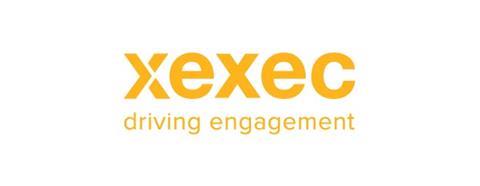
As the Industrial Revolution changed the face of industry and manufacturing between 1760 and 1840, technology has, and continues to have a similar impact in the way we do business today. According to McKinsey, over the next decade, the need for some skills, such as technological as well as social and emotional skills, will rise, even as the demand for others, including physical and manual skills, falls.
Mckinsey goes on to claim that the introduction of technology has also been the driving force behind a huge shift in skills in the workplace. However, the continued adoption of automation and Artificial Intelligence (AI) will mark an increased acceleration in these skills changes, meaning that organisations will have to adapt and rethink the way they attract, retain and motivate the talent they need.
But it's not just Mckinsey who are citing this sea change in both business and required skill sets. In his book, The Fourth Industrial Revolution, Professor Klaus Schwab, founder and executive chairman of the World Economic Forum, discusses both the positive changes technology has but also talks about some concerns about the way businesses are currently run. He calls for leaders to “together shape a future that works for all by putting people first, empowering them and constantly reminding ourselves that all of these new technologies are first and foremost tools made by people for people.”
But not all technology is made for people. In fact, some feel that technologies have been implemented to replace people - such as Artificial Intelligence (AI). This is specifically relevant to a number of skillsets such as HR, Accounting, call centres and sales. In HR, many see the first true implementation of AI in talent acquisition, traditionally a very personal and interactive role. And now with more software than ever before being available in Accounting, has technology removed the need for traditional bookkeepers? All of this is both exciting and fairly unnerving for those professionals who see themselves and their futures affected.
So how do companies embrace the technology they need to maintain a competitive advantage and drive down costs whilst keeping the business focused on its people?
The one place we can look to for inspiration and insights is employee benefits and how the use of automated technology has both enhanced the process and had a positive impact on talent as skillsets, infrastructure and the demographics of a workforce have evolved.
Many companies are now using technology platforms to manage both their Employee Benefits and facilitate their reward and recognition schemes. Driven by the emergence of Millennials in the workforce, the way we all work and perceive our jobs has changed. Many more of us are working remotely or from home. Data from the Office for National Statistics (ONS) shows that the number of UK workers who work remotely continues to see a steady increase year on year. In addition, Google estimated 3 billion people globally perform work away from a desk every day across all types of industry.
In addition, the changing demographic of a modern workforce is a key issue to address. Again this is often a direct reflection of the skills requirements driven by the adoption of and adaption to new technology and a modern way of working. For example, every company is now a technology company. Businesses have been born into the Internet era and have grown around this technology. Those companies that were in existence before the internet are having to invest heavily in technology just to keep up with their new, younger and leaner competitors.
This has led to a demand for tech-savvy individuals with degrees in programming, dynamic communications, AI, automation, graphic design and so on. Traditionally these are the younger next generation of workers - mainly Millennials who all have their own ideas of how they want to work and the benefits they are looking for in their current and next roles.
These “demands” have to be met by employers if they want to attract and retain the best talent in an increasingly competitive market. Not only that but they need to motivate and inspire their existing staff - after all not every job is behind a computer and there is still massive importance put on face-to-face communications and personalisation in the workplace.
The benefits companies provide can play a vital role in engaging employees despite the changing skillset needs in your business. From health and wellbeing discounts at your local gyms, yoga and pilates clubs to restaurant and high street shopping discounts through to reduced price cinema, theatre and family experience tickets.
We live in an age of dynamic, flexible workforces, underpinned by ever-evolving technology that is going to drive the skillset and talent needed for companies to succeed. It will not be easy for every organisation to adapt and attract or retain their best talent, but they can give themselves the best opportunity to do so by implementing a dynamic and flexible employee benefits platform that mirrors the make-up and demands of their teams.
For more information, check out our e-book on voluntary benefits.











